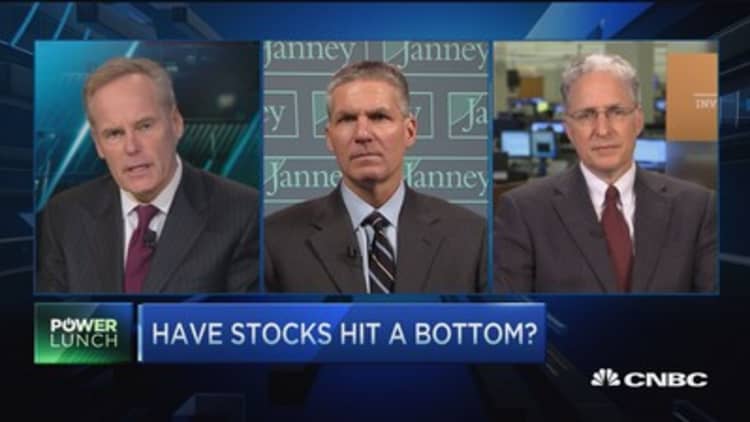
Fears of slow global economic growth and a glut in the oil market have ignited debates about whether there's a recession ahead, but some think that the market, which started the year with a drop, will bounce back later this year.
"The China fears will dissipate as they have for the last several years every time we have another China spike," Paul Christopher, head global market strategist at the Wells Fargo Investment Institute, told CNBC on Tuesday.
Despite headwinds ahead, the strategist targets the at about 2,330 for the end of the year, forecasting a recovery in oil prices and mid-single-digit growth for earnings.
However, Christopher said on "Power Lunch" that he is not ready to commit to oil stocks.
"It's too soon for that. After all, there's going to be a lot of write-offs that are still in the works that have to happen as a result of the sell-off," adding that it'll take additional time for the firm to invest in the sector.
Market watchers are concerned about Iranian oil entering the market soon, and how the current glut will continue to affect crude prices.
The International Energy Agency reported on Tuesday that oil supply continues to exceed demand, placing an "enormous strain" on the the industry's ability to soak up the excess and putting greater pressure on prices.
Still, Mark Luschini, chief investment strategist at Janney Montgomery, considers that while growing demand is slow, there's still a growing demand and the market is experiencing a supply shock problem. The strategist thinks that the market is poised to experience "continued supply destruction."
"A consequence of too-low oil prices [will be] taking out higher production-cost shale [producers]," he said. "That will lead to a supple/demand balance perhaps in the second half of 2016."
— CNBC's Evelyn Cheng contributed to this story.



